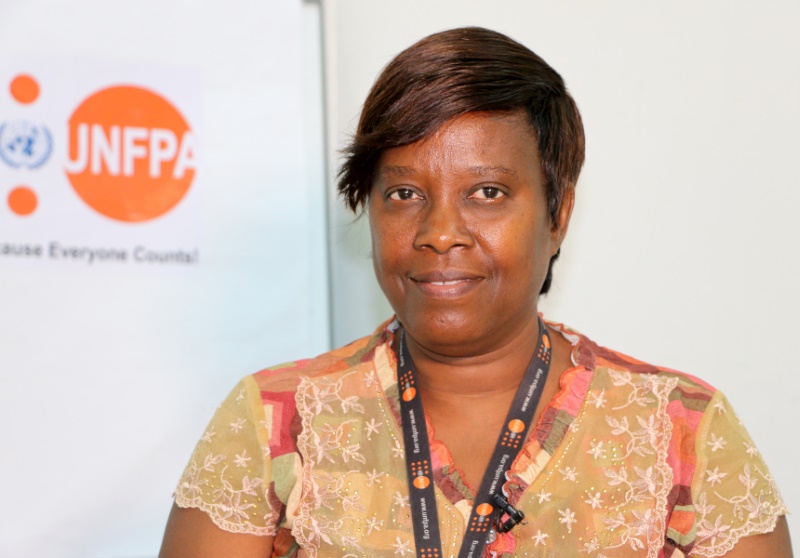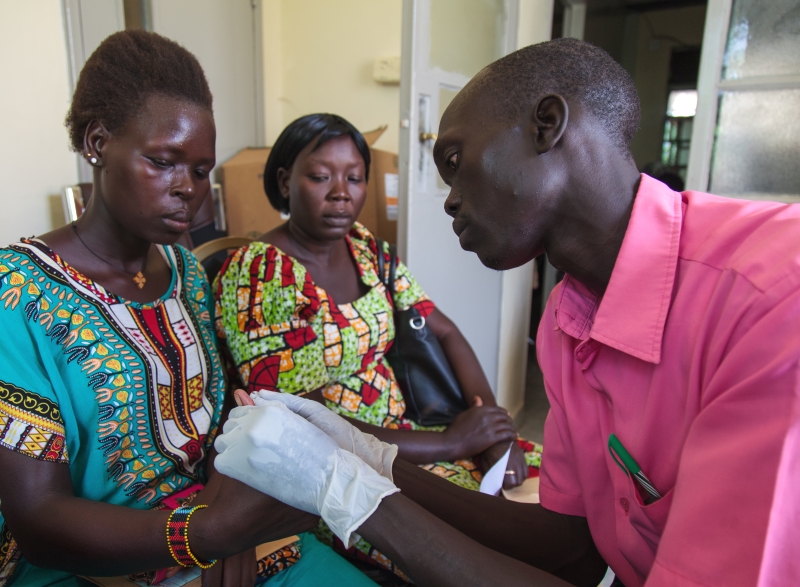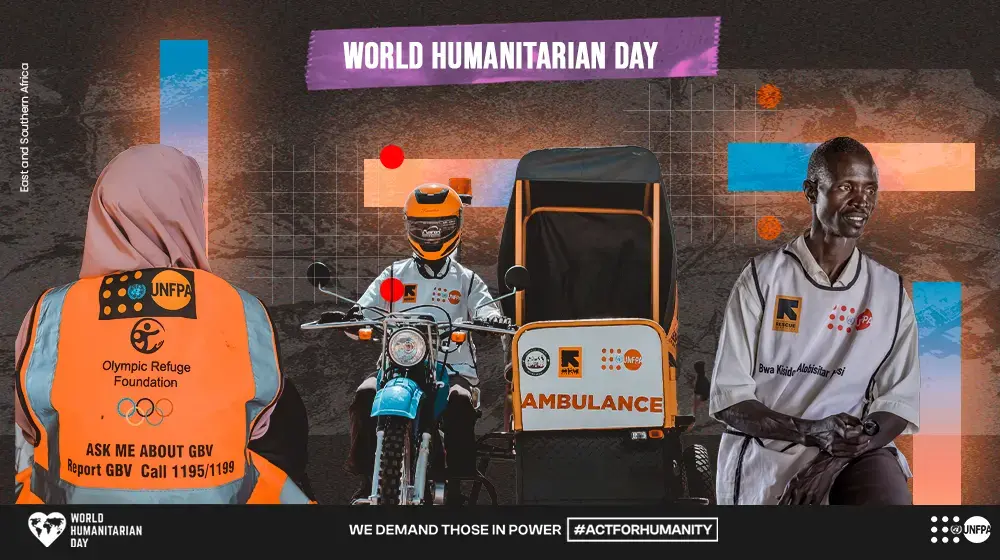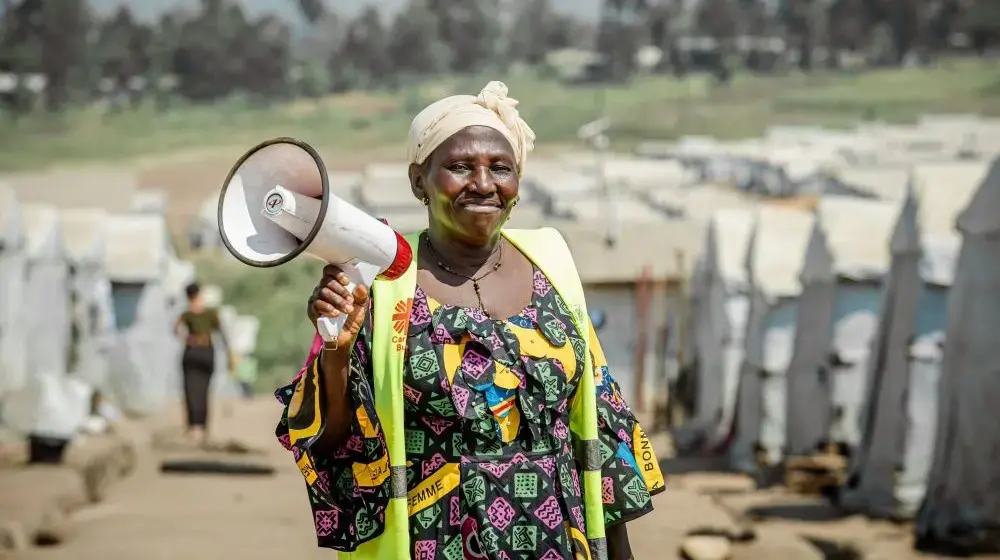“I didn’t plan to come to South Sudan. One day I found myself on the UNV (United Nations Volunteers programme) website and I decided to put my profile there. I didn’t even know that South Sudan needed midwives.”
Alexina Myambero Stimela, a retired military nurse and midwife of 25 years from Lusaka, Zambia, has been working in South Sudan for more than five years. For the past two and a half years she has been serving in Wau, in Western Bahr Elgazal.
This is her story of working as a UNFPA-supported midwife in South Sudan, a country that has experienced conflict since December 2013.
When I arrived I saw [people’s] needs. I felt I needed to contribute in a positive way.

“I knew that I was coming to a conflict-affected country. And my family members also knew that there were problems in South Sudan. Maybe because of my military background, I didn’t have that fear of coming [here].
“When I arrived I saw [people’s] needs. I felt I needed to contribute in a positive way. [At] my first duty station [in Rumbek], I found that the records were not up to date. By the time I left I had established a system recording the activities. I think that was an achievement.
“At my last duty station I was assigned at the Ministry of Health. I was able to develop a supervision checklist, which is now in use. We’ve been using it to visit the facilities to give them support. I was also able to mentor the sexual and reproductive health officer at the Ministry of Health. She’s now able to run all the activities on her own.
UNFPA has been supporting fistula repair campaigns. Some of the patients came back pregnant and were able to deliver safely. I think that is a really good [achievement].
“UNFPA has been supporting fistula repair campaigns and I’ve contributed to some of those campaigns. I was able to see some of the results. Some of the patients came back pregnant and were able to deliver safely. And they were able to hold their babies. I think that is a really good [achievement].
“I have one [regrettable] story of a young lady who was about 13-14 years old, who married early and she fell pregnant in a hard-to-reach place. When she went into labour, the village midwife and the elders tried to help her and when they failed, they referred her to Cuibet Hospital. Then she was referred to Rumbek teaching hospital, where I was [stationed].
When she arrived, she had been in labour for almost four days. The baby was delivered dead. Unfortunately she developed an obstetric fistula and was in a critical condition.
“When she arrived, she had been in labour for almost four days. The baby was delivered dead. Unfortunately she developed an obstetric fistula and was in a critical condition.
“Fortunately, she made it. We organized some money and bought her antibiotics, because [the hospital] had run out of them. She recovered and we continued supporting and counselling her.

“Initially she couldn’t walk, and if she stood [urine and faeces] would leak [from her]. We told her that fistula is condition that can be corrected.
“She was very eager to be helped during the next fistula campaign. But her condition was complicated and she needed specialized treatment outside South Sudan. Unfortunately, war broke out.
She had fallen pregnant while still having that fistula and she carried the pregnancy until seven months.
“I was [sent] home from December till March. During that time I lost contact with her.
“Later on, we heard that she had passed away. She had fallen pregnant while still having that fistula and she carried the pregnancy until seven months.
“I heard that her husband had confiscated the documents that she was supposed to use to go for specialized treatment. When she was carrying something heavy on her head, she fell. She started bleeding. They couldn’t take her to the hospital.
“One day she collapsed and gave birth to the baby she was carrying. But the baby was dead. And after giving birth, she died.
“That is a sad story because I had tried to follow up. I wanted her to receive the help she needed. I feel an emptiness inside me. It is something that was unaccomplished.

“Otherwise, [there were] success stories, like a lady who had three surgeries to repair her obstetric fistula and eventually, the third operation was successful. She got pregnant [afterwards] and came back to deliver in the hospital by Caesarean section. And she went home with a bouncing baby. Her story gives [me] hope.
“Now, I intend to open a nursing home [in Zambia]. I have already built the structure and I need [to get] the equipment. And I hope I’ll be able to expand from there.”
“I think South Sudan is already on the right path [for improving midwifery services]. They are training more midwives and as the numbers increase, things will get better. Especially if UNFPA is going to continue building capacities. UNFPA is implementing this programme and it’s a commendable thing [the Fund] is doing.
She encourages other midwives to work in South Sudan. “Leave your comfort zone and help where you think your skills, knowledge and experiences could make a positive contribution,” she says.




